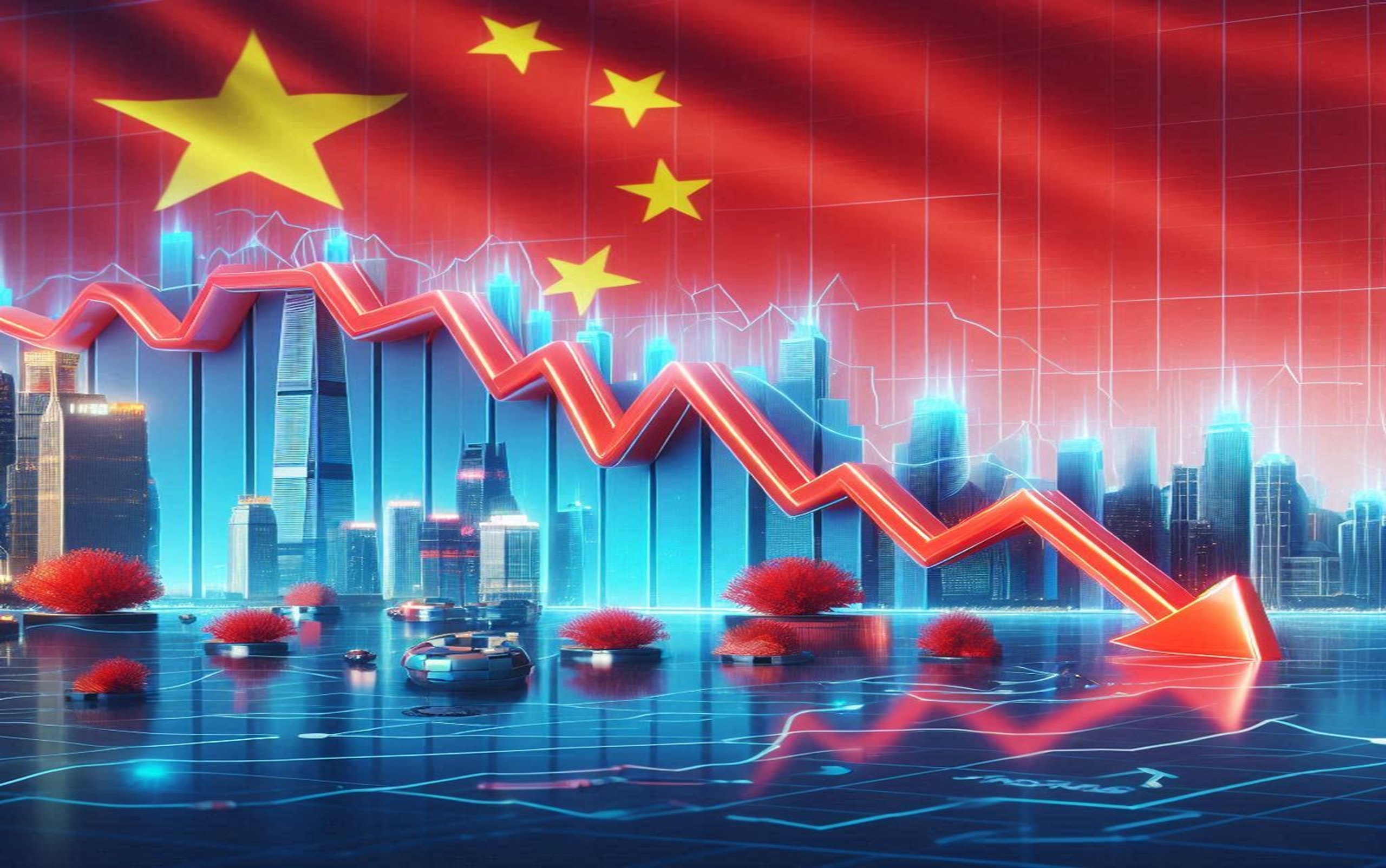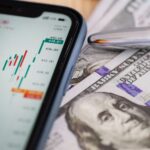China has been praised as the global economic superpower in recent years, with an aspirational trajectory that seemed set to challenge, if not exceed, the United States. Global economic narratives have revolved mostly on the picture of a resurgent China, distinguished by amazing GDP growth, vast infrastructure projects, and a flourishing real estate market.
Beyond this surface of relentless development, though, lurks a complicated and unstable financial condition. Deeper we go, it is abundantly evident that China is on the verge of a major economic crisis with far-reaching effects for the world economy as well as its own future.
Debt Crisis: The Increasing Load
An unsustainable debt issue is at core the cause of China’s present economic crisis. China’s debt-to— GDP ratio has surged from over 140% in 2007 to a startling 300% now during the past two decades. This exponential rise is blatantly evidence of the nation’s over-reliance on debt-fueled development. By contrast, Germany’s debt-to—GDP ratio is about 175%; the United States has about 250%. High debt levels in China affect financial stability globally, hence they are not only a domestic but also a worldwide issue.
Mass infrastructure and real estate investments, industries that have come to define China’s economic approach, have mostly fueled country’s development. Still, this growth paradigm has resulted in an inflation of asset values and an overreach of credit. Once a symbol of China’s economic miracle, the real estate sector is today experiencing a dramatic collapse.
Many people’s desire of owning is far-off since property prices have grown unaffordable. Inflated by speculative investment and too much borrowing, this bubble is starting to pop and might destroy the economic stability China has so painstakingly created.
Woes in Real Estate: The Domino Effect
The status of China’s real estate market offers a striking example of the more general economic difficulties. Consider Evergrande, one of the biggest real estate developers in China, struggling with more than $300 billion in debt. The financial crisis of the corporation has rippled the world financial system and caused anxiety about a possible financial meltdown akin to the Lehman Brothers fall-through.
But Evergrande is not a unique instance; the real estate industry is replete with too much debt and dubious financial methods, hence increasing the likelihood of a systematic collapse.
A real estate crisis has spillover effects beyond of the local financial sector. From steel and cement to consumer goods, the effect is seen across many sectors as building projects lie idle and property values fall. A slow down in real estate compromises not only economic development but also consumer and investor confidence.
State Control and Inefficiencies in the Economy
Furthermore, defining China’s economic model has been notable state intervention and control. While maintaining low borrowing rates has helped to drive fast industrialization, it has also resulted in extensive resource misallocation by the government. Renowned for their inefficiencies, state-owned businesses (SOEs) have gotten an unfair amount of credit. SOEs barely account for 20% of industrial output, although controlling around 60% of bank loans, which highlights their ineffectiveness when contrasted to more vibrant private companies.
Recent actions by the CCP toward more state control over the economy—including crackdowns on tech behemoths and private businesses—have aggravated these inefficiencies. Although meant to show control and lower risk, these policies have hampered innovation and lessened the competitive energy that has been defining China’s economic success.
Decline in Population: The Quiet Crisis
China’s demographic drop presents maybe the biggest threat it faces. The one-child rules have produced an aging population and a declining workforce over decades. Far below the replacement norm of 2.1, the fertility rate in China has dropped to 1.3 births per woman. China’s working-age population is expected to drop by almost half by 2030, while the elderly population will treble.
There are various economic ramifications to this demographic change. A declining workforce increases wages and reduces China’s cost competitiveness, which forces companies seeking less expensive manufacturing sites elsewhere. A declining customer base also reduces domestic demand, therefore taxing economic growth. Policy initiatives aimed at bucking the trend—such as loosening the one-child rule and providing incentives for bigger families—have so far not shown appreciable impact.
Global Effects: A Ripple Reaction
The possible economic fall-off of China would not limit its boundaries. China’s economic problems, second-largest economy in the world, might have broad consequences. A significant financial crisis in China would affect worldwide trade, cause upheaval in the global economy, and throw off supply lines. Strong economic links to China—especially for emerging markets and commodities exporters—may present major difficulties for nations.
Furthermore, influencing world investment patterns and economic policies could be China’s slowdown in economy. For example, the declining demand for commodities could result in decreased prices, therefore affecting economies dependent on resource exports. As investors review their exposure to Chinese assets and the global economic situation, financial markets could potentially show volatility.
Conclusion: The Road Ahead
China finds itself at a crossroads with a combination of economic difficulties threatening to compromise its remarkable development narrative. A massive economic catastrophe might be sparked by the unsustainable debt levels, collapsing real estate bubble, state-driven inefficiencies, and extreme demographic change. Although the Chinese government has shown historical resilience and adaptability, the scope of these problems indicates that the road forward will be arduous.
The focus now is not whether China will have an economic reckoning but rather on when and how severe it will be. The world has to get ready for the possible knock-on effects of China’s economic woes and take wider view of the consequences for world trade and financial stability. The world will be intently observing China as it negotiates this storm since the results will have broad effects on the state of the economy.
Also read:
The Global Finance Tightrope: Are We Traveling toward a Fragile Future?







1 thought on “China’s Economic Storm: Revealing the Approach Disaster”
Comments are closed.